|
Introduction
and Page 1 /
2 /
3 /
4 /
5 /
6 /
7 /
8 /
9 /
10 /
11 /
12 /
13 /
14 /
15 /
16 /
17 /
18 /
19 /
20 /
21 /
22 /
23 /
24 /
25 /
26 /
27 /
28 /
29 /
30 /
31 /
32 /
33 /
34 /
35 /
36 /
37 /
38 /
39 /
40 /
41 /
42 /
43 /
44 /
45 /
46 /
47 /
48 /
49 /
50 /
51 /
52 /
53 /
54 /
55 /
56 /
57 /
58 /
59 /
60 /
61 /
62 /
63 /
64 /
65 /
66 /
67 /
68 /
69 /
70 /
71 /
72 /
73 /
74 /
75 /
76 /
77 /
78 /
79 /
80 /
81 /
82 /
83 /
84 /
85 /
86 /
87 /
88 /
89 /
90 /
91 /
92 /
93 /
94 /
95 /
96 /
97 /
98 /
99 /
100 /
101 /
102 /
103 /
104 /
105 /
106 /
107 /
108 /
109 /
110 /
111 /
112 /
113 /
114 /
115 /
116 /
117 /
118 /
119 /
120 /
121 /
122
92
< Page 93 < 94
Ray Carney's Mailbag -- This section of the site contains letters written to Prof. Carney by students and artists, announcements of news, events, and screenings, and miscellaneous observations about life and art by Ray Carney. Letters and notices submitted by readers are in black. Prof. Carney's responses, observations, and recommendations are in blue. Note that Prof. Carney receives many more letters and announcements than he can possibly include on the site. The material on these pages has been selected as being that which will be the most interesting, inspiring, useful, or informative to site readers. Click on the first page (via the links at the top or bottom of the page)
to read an explanation of this material, why it is being posted, and how this relatively small selection was made from among the tens of thousands of messages Prof. Carney has received.
Click
here for best printing of text
Subject: Comedy Question for Ray Carney
Dear Mr. Carney -
I know you get a lot of email. But I have a question for you that I've never heard you cover, and I would desperately love to hear the answer!!
I'm a stand up comedian in New York City. I was exposed to your writing at Emerson College, by a film professor. You'll be pleased to know that they opened my eyes so much that I switched my major from film to creative writing and started doing comedy. The idea of trying to write a clichéd Hollywood feature turned my stomach, and your work opened my eyes to a wealth of exciting artists and films!
My question to you is about comedy. In one of the interviews I read with you, you mentioned that you dislike satire. I don't remember the exact quote, but I think it had to do with nothing emotional being at stake. My question is: do you truly feel there is no room for satire? Several comedians that you have endorse have done great satire: Lenny Bruce, Bill Hicks and Richard Pryor to name a few. What about Lenny Bruce's animated "Thank You Mask Man"? While it's not the best example of Bruce's work, it's certainly very funny, and points out (among other things), the inherent racism in "The Lone Ranger". Today, comedians like Dave Chappelle used satire to great effect, with "Chappelle's Show". If you look at the best sketches from "Chappelle's Show", there is something emotional at stake in great satire. I feel that sometimes, it's as simple as a ridiculing a very disturbing idea that is socially accepted.
I'm curious about your thoughts, because you're one of the few people involved in film that is saying what I believe is true.
I believe that satire isn't good to carry a full film, because you want more than just one note. But do you honestly feel that it can't be used in places, like a color in an artist's palette, to point out social evils?
I would love to hear your thoughts on it. PLEASE keep writing and doing what you are doing. You are like the prophet Amos, in the desert. Your ideas are the only madness that make any sense!!!!
Bryan Olsen
RC replies:
Bryan,
Thanks for the biblical comparison, but I feel more like "Amos and Andy" most days. (That's before your time, but it was a TERRIFIC comedy show that was forced off radio and TV for the usual reasons.)
To answer your question. I am being misquoted! Or at least quoted out of context!! Maybe I'll run for office. That seems to be one of the qualifications. Or lame excuses.
Here's the story: someone asked me about some hateful thing by Robert Altman or Werner Schlondorff or the Coen brothers, and I responded with something like: "Great art is never about sneering or superiority. It is about kindness and humility. Great art is never an act of meanness. It is an act of sympathy and caring. Great art never just satirizes. It loves." Or words to that effect.
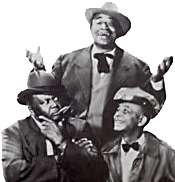 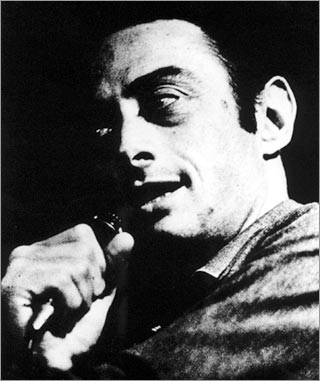 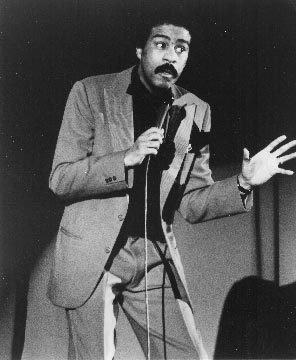 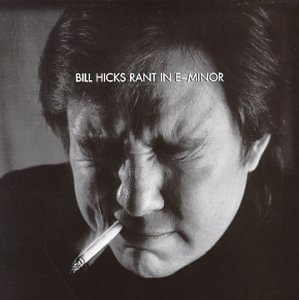 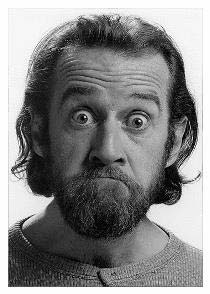
That doesn't preclude satrire, but it asks that it be done for the right reasons, in the right way. Satire is often necessary to clear a space for freedom. To blast away the old to make room for the new. To hose down the stables and wash the manure out. Of course Lenny Bruce, Richard Pryor, Bill Hicks, and George Carlin do that. We need that to be done. But my point is that art is never merely and totally a sneer of contempt, of dismissal, of superiority in the negative way. It is an act of love and tenderness and caring. And even satire (when it is done by geniuses like Bruce or Carlin or the others) can be that. We hate the sin so much because we love the sinner so much. We hate America today, because we see how completely it is betraying its founding principles and values.
So in short keep doing what you are doing, as long as it originates from love for the right, the good, the just, the true -- as I'm sure it does. Keep cleaning out the Aegean stables.
RC
P.S. Sorry that I can't comment on the TV allusions (at least that is what I assume "Chappelle's Show" is). I don't watch TV any more than I am forced to. Just can't take the stupidity of it all. Especially the stupidity of the shows that are supposed to be "non-fiction" like the news and the political stories. I can find emotional truth in almost anything, even daytime soap operas, but Hillary Clinton and Rudy Giuliani and the reporters who fawn on them were clearly born on some scary planet I don't understand the first thing about and certainly never want to travel to, even by video.
From: Jorge Capacete
Subject: Brilliant website
Mr. Carney, this website is the education I didn't receive in school. As a filmmaker/Actor, it is a precious resource for me. Keep up the great work. Ciao!
RC replies:
Jorge,
Flattery will get you everywhere. Tell me about yourself: What have you acted in? How far along are you (just out of school or what)? What are your interests? I'm curious.
--R.C.
Born and raised in L.A. Born to Mexican parents. I'm 35. Married
to a wonderful woman and we love kids but desire none. One of our
many passions is travel.
First and foremost I'm an actor. I'm non-union and not ashamed of
it. I've enjoyed performing ever since I was a child. I've done a
few shorts and features for students and up and coming filmmakers in
the L.A. area. Some theatre along the way. Nothing I am proud of
but mainly to gain experience and knowledge.
Became interested in storytelling in 1997. I didn't go to a major
film school but I've taken courses at junior colleges and other
private institutions. Mainly to learn some technical aspects. I did
a couple of shorts for Los Angeles city college. I currently have an
A.A. I want to go back to school and obtain my B.A. in literature or
English. My real film education came from watching films, reading
essays such as yours, listening to people and mainly from living
life. I am putting my life experience's into these features. Now
if I could only find the right actors who will believe in my vision.
I don't care for results, that will sort out in the end. These
features will involve improvisation. We will explore questions and
idea's. But mostly enjoy the moment as artist's.
Most importantly something happened along the way. I can't explain
it. I find myself appreciating films such as "Shadows" and the "Puffy Chair." Everything in my life, good and bad, has led up to
this. I'm a late bloomer but I am finally comfortable in my own
skin. I trust how I see the world. I feel centered and I'm ready to
make features. Not for money or fame. For more important things
such as reminding people about our five senses. Stories about how to
believe in Love again. Stories about people we love who are going
to through depression. These stories are all around us. The little
things that are taken for granted. I have become more comfortable
with the sensitivity that has always existed in me.
Here is a link to a little more about me. Take care Mr. Carney.
Jorge Capacete
A bulletin from the Mill Valley Film Festival. (See the top of Mailbag page 88, accessible through the blue page numbers at the top and bottom of this page, for the schedule of screenings). -- R.C.
Hi Ray,
PRESQUE ISLE's debut at Mill Valley went very well. Sold out house, lots of good response. Quite a departure from 9 @ Night but it was something I wanted to try......
Sometimes I pinch myself to see if I'm going to wake up. I've led a charmed life making the films I wanted to make. Lucky in friends and collaborators. I wouldn't change a day of it.
Rob
RC replies:
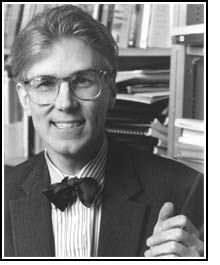 We've both had lucky lives, in our different areas. Making a difference, however small. What's the Margaret Meade quote? "People despair that there are only one or two or three of them attempting to change things. I've never understand why they feel discouraged. Every major revolution and transformation of the world, in every corner of the globe and throughout all of history, has originated in the ideas and efforts of one or two or three people." Something like that...... We've both had lucky lives, in our different areas. Making a difference, however small. What's the Margaret Meade quote? "People despair that there are only one or two or three of them attempting to change things. I've never understand why they feel discouraged. Every major revolution and transformation of the world, in every corner of the globe and throughout all of history, has originated in the ideas and efforts of one or two or three people." Something like that......
Funny thing is that I tell my students that they can make the film they want to make and maybe change the world a little if they dare to become an indie filmmaker; but most of them don't want that. They actually want to become a cog in the Hollywood studio machine. As students, they just can't wait to intern at some Hollywood studio or agency in Los Angeles, and they head west to try to get a toe-licking job in L.A. the second they graduate. They just can't wait to become a lackey and a servant to the rich, famous, and powerful. Can't wait to try to sell their souls. Can't wait to be enslaved, when independence and freedom are at their fingertips. (A note added for site visitors: Click here --and follow the links on the page you are taken to -- to read how American film programs encourage this corporate belief system.) Just another one of those things I'll never understand. Lucas Sabean sent in a quote from D.H. Lawrence that touches on the problem (see my reply to the first letter posted on Mailbag page 84), but it's even worse than Lawrence imagined. America really has gone insane in many ways.
R.C.
PASSE::FNC - Portes ouvertes au Nouveau cinéma
Le Festival du nouveau cinéma vous ouvre grand ses portes avec le laissez-passer unique de sa 36e édition.
Que vous soyez un professionnel ou un inconditionnel du cinéma, la PASSE::FNC vous donnera accès à toutes les séances du Festival*.
Tarif régulier: 100$
Tarif spécial étudiants et aînés**: 80$
En prévente à la Billetterie centrale du Festival:
le 6 octobre : 10h à 20h
du 7 au 10 octobre : 12h à 20h
Billets individuels et carnets aussi disponibles à compter du 6 octobre:
à la Billetterie centrale du Festival:
Ex-Centris - 3536, boul. St-Laurent
par téléphone:
514 844 2172 / 1 866 844 2172
en ligne:
www.nouveaucinema.ca
Dear Ray,
As you may already know, submissions are currently open for Tribeca All Access, a year-round networking and career development forum of the Tribeca Film Institute's that promotes directors and screenwriters from traditionally under-represented communities. Over the past four years, a select group of both established and emerging filmmakers have had the opportunity to meet with film industry professionals in a structured environment during the Tribeca Film Festival, in addition to networking and learning from dedicated panels and workshops.
I have pasted a blurb about the call for submissions below and would greatly appreciate it if you could help spread the word....
Warm Regards,
Tamir Muhammad
Industry Liaison & Submissions Coordinator | Tribeca All Access
(212) 941-4012
allaccess@TribecaFilmInstitute.org

Tribeca All Access Call for Entries
Tribeca All Access (TAA) is a year round networking and career development forum that promotes directors and screenwriters from traditionally under-represented communities. Approximately 30 directors and screenwriters will be selected to participate in one-on-one meetings with key industry players in addition to networking and learning from dedicated panels and workshops during the Tribeca Film Festival. Program alumni receive support year-round through the TAA online forum, networking events in LA and NYC, and other customized activities.
Tribeca All Access is open to both mid-career and emerging narrative and documentary filmmakers. The program is now a recognized talent pool within the industry and an unrivaled opportunity to advance your filmmaking career.
Applicants are required to apply with a completed feature-length screenplay, documentary proposal, or documentary work-in-progress.
Apply Now! Deadline is December 03, 2007.
Visit www.tribecafilminstitute.org for complete details.
Hi Ray,
I'm researching a thesis at the moment on the subject of filmmakers who have tried to change the world with their films. Robert Kramer and his work will hopefully be a big part of it, but apart from the excellent website of his writing (www.windwalk.net), I haven't been able to find any substantial written material on his work. Do you know of any? There's a piece on his website called "Snap Shots" which appears to be the introduction to a book about him edited by Cedric Venail and Vincent Vatrican, but I haven't been able to find any information on this book's existence.
By the way, your readers might be interested to know that as well as ROUTE ONE/USA, which has been released on DVD in France, copies of Kramer's ICE and BERLIN 10 90 are available for download with the software eMule (or aMule for Mac users).
Oh, and a film of mine was recently screened at an excellent film festival in Italy, the Lucca Film Festival, alongside one by Keja Ho Kramer, Robert's daughter. Do you know her work? And did you get my email about MIKEY AND NICKY a while ago?
Best,
---Donal
From RC: My reply will follow in a few days (but a hint: I wrote a good chunk in the Venail book you are searching for--in fact the cover image is the one I use for the Robert Kramer section of the site. Use the search engine to find it.) -- R.C
A note from Ray Carney: Donal Foreman wrote requesting a more complete reply to his letter. I wrote the following to him:
Dear Donal,
OK, here's your reply. Fact is there's ALMOST NOTHING written in English about Robert Kramer (beyond the book I contributed to, and beyond flakey, junky reviews that appeared now and then when the films played). That's it. That's all. More or less nothing else about one of the major indie filmmakers of our era. One of the greatest cinematic artists of the past 40 years was simply written out of film history. Not mentioned in any of the books, beyond a footnote or half-sentence passing notice. Not written up in film magazines. Not studied in courses by scholars and students (except for my own lectures and courses, where I showed ALL of Kramer's important films many times, and had him visit my class once).
But don't just be frustrated by this fact. Or ignore it. Take it to heart. It reveals important truths about American culture, the culture Kramer worked in and examined in many of his films. And the ignoring of Kramer is not unique. Cassavetes was ignored exactly the same way. When I wrote my first book on him. I told you or posted on the site somewhere that the manuscript was rejected -- not because it was badly written but because it was about someone so "unimportant" in the view of the professors and film publishers. And this state of ignoring major work is still true of many of the best filmmakers of the past 50 years in America. How much has been written about Loden? About Korty? About Engel? About Rappaport? Almost nothing. Nada.
Things are totally different in Europe. The Germans, French, Italian film artists are NOT overlooked in their own countries and by their own critics this way. It's the awful influence of American reviewing, in my opinion. Deal with that. Make that the subject of a chapter. It is of crucial importance to the furture of film, so that this situation doesn't keep happening again and again.
RC
P.S. Want to hear a good one? A major Boston art film theater, the Coolidge Corner Theater, just hosted a panel discussion about the state of American film criticism. Guess who they invited to speak? Not me, of course, Every single person on their panel discussion was a newspaper reviewer. What does that tell you? It tells me a lot.
See my discussion on Mailbag page 83 of how the reviewers at Boston's two major newspapers failed to print a single sentence in their newspapers about the indie film festival I curated for the Harvard Film Archive last summer. American film coverage is, with the fewest of exceptions, in the hands of commercial interests. Reviews and essays in film magazines might as well be bought and paid for by the Hollywood publicists. Reviewers claim to be intellectually independent, but, almost without exception, they are only interested in writing what sells and writing about what sells. They have sold their souls and given away their brains. And, to make things worse, the art film theater and specialty programmers don't dare complain about the whole rotten system because they are afraid of alienating the reviewers and being penalized by them by being ignored even more in the future. (See what I say on Mailbag page 83 about this.)
A note from Ray Carney. I have deleted the name of the film festival in what follows. The name of the festival is not the important issue. What matters is what sorts of values inform these sorts of events. That is the only reason I am printing this letter and my reply. I invite reader responses. How would you reply to the following request? What is the best way to organize a tribute to John Cassavetes? - R.C.
Subject: CASSAVETES TRIBUTE
Dear Professor Carney,
I'm writing to you from the **** Film Festival.....
..... John Cassavetes and his tremendous contribution to American and World Cinema, and we are considering honoring his legacy with a tribute at the next festival, which may include:
3 screenings of 3 of his most important films.
Honoring Gena Rowlands
Honoring Phedon Papamichael Sr.
Show a montage of clips from J. Cassavetes' work and interviews
Show a montage of Gena Rowlands' work
2-3 guest speakers that knew and worked with Cassavetes
I would greatly appreciate it if you could offer any suggestions on the films J. Cassavetes made (Besides Faces, which do you think are his best?) or films about him or actors or others that would be good to have as guest speakers or anything you may want to add.
Your expert assistance would be extremely important to us!
I thank you for your time and consideration.
Dear xxx,
Thanks for the information. I would love to be invited out to speak or attend the events since I clearly know more about this subject than anyone else on the planet (with the possible exception of Gena Rowlands). But, based on the prospective invitation list you sent, it appears that perhaps you are limiting yourself to "movie star" invitations. If that is the case, I guess all I can do is recommend that you glance at a few of the pages on my site where I talk about the limitations of those kinds of guests. Have you thought about how movie stars and crew members and people who knew Cassavetes might not be the best people to invite? How they might not really know very much about the films? How they might actually be the WRONG people to ask about them? In Cassavetes' case, the hazards are unusually great, since so many of them are "settling scores" about others' contributions, or have misrepresented their roles in the creation of the films. See the following pages on my site for a quick introduction:
http://people.bu.edu/rcarney/JCinsecure/Rowlandscontrol.shtml
and
http://people.bu.edu/rcarney/cassoverview/chronology5.shtml
There are many other links on those pages that have related discussions.
It really depends how much honesty and truth you are interested in presenting in your events. I wish you great success. Let me know by all means if you would want me to come out and speak.
All best wishes,
Ray Carney, Prof. of Film and American Studies
Subject: One Nation Film Contest and other things...
Dear Ray,
I'd like to start by saying that I've been very happy to see you champion the work of some of the best young (and young-ish) emerging and often neglected indie directors out there - not to mention, of course, your scholarship on John Cassavetes.
I am a Web Producer at Link TV, a national non-profit TV station based in San Francisco. We are co-presenting an online film contest which might be of interest to your students and faculty, although I'm not sure if you're teaching theory or practice at BU. I am pasting some information about the contest below, and if you're interested in printing out fliers or posters, you can click on this link to download a pdf.
Please feel free to contact me directly if you have any questions about the contest, and to forward this along to any filmmakers who might be interested.
Best Regards,
Hannah Eaves
Web Producer & Editor, Link TV
RC Replies:
Thanks for the kind words, Hannah. I need all the love I can get!!! Never have too much. Never have enough. : )
Anyway, shall spread the word far and wide and post your notice in the Mailbag of my site. 50,000 hits a month can't hurt. Maybe some of them will pass on the info to others.
I know many filmmakers out there in the San Francisco area. And I send many students there every year. Better than NY and LA! Do you know Rob Nilsson's work? I'm putting together a major screening of his Nine at Night series for Harvard right now. And I just remembered another great filmmaker in the Bay area: Jay Rosenblatt. May be too far out for your taste, but a great artist. And what happened to the Roxy? Is Bill Banning still in charge?
Stay well. Someone should organize screenings for your network and promote some of this stuff. Have no idea what's being done now, since I cancelled my subscription to cable years ago. Felt like an open sewer pipe was spilling into my living room. Unfortunately, even the Sundance and IFP channels weren't much better than HBO and Showtime. What's wrong with this crazy culture?
Best wishes,
RC
P.S.. Re-reading your note to me, I belatedly realized that the "network" you run is really a "net" "work!" I.e. it's on the net and not on TV. Oops! Sorry. My stupidity. I don't have software to view videos on my computer (too old and creaky), so please excuse my ignorance. I recommend the link to my readers, in any case.
Subject: Confused Identification Strategy
Mr. Carney,
I'm a huge fan of your books, and following your recommendation of "What Happened Was..", I spent the last few years studying with Tom Noonan and putting on plays and making movies at his theater.
I read "confused identification strategy " in your comment on Larry David. What does that mean? I'm familiar with some of the other strategies - power zig-zagging, tonal shifts, implicit + active dialogue, playing/writing against expectations/assumptions...Tom teaches a lot of that technical stuff.
Are there anymore?
Best,
Alex Simon
P.S. I don't have any movies worth showing yet...here's some video of me playing Django stuff: http://www.youtube.com/9oh21oh
RC replies:
Subject: Issues of Life and Death
Alex,
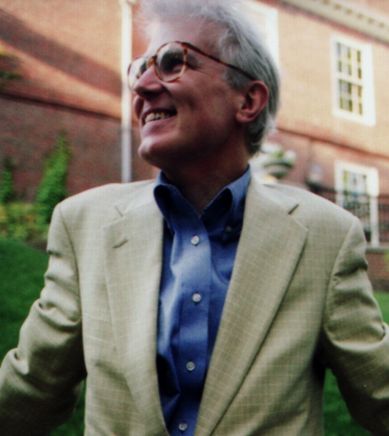 It's nothing taught in classes or printed in a drama book. Like most of the rest of what I teach, it's something I came up with on my own, so don't worry about not knowing it. I wrote it in terms of Larry David's work based on a viewing of the pilot episode -- the first one aired, which made me immediately fall in love with his work (though I haven't seen much of what he has done since then since I don't have cable). What I meant was luring the viewer into an emotionally and intellectually confused place, by making him sympathize with a character he later doesn't want to sympathize with -- or, even more complexly and interestingly, making the viewer suddenly feel that he has made a series of mistakes in understanding and interpreting a character, so that he is suddenly uncertain about whether he should or should not sympathize with the character, like the character, identify with the character. Larry David's character is that way in the pilot episode. His weirdness catches you completely off-guard and pulls the rug out from under you. It was really kind of shocking, emotionally speaking, in the pilot episode. (Now of course, since it's been done so often in his work, it's a kind of formula and doesn't have the same power.) Todd Haynes also does a version of this in Safe. We can't decide how we feel about Carol White or about Peter what's his name, the character who is the director of Wrenwood. We start to identify with both of them, but then change our minds and become uncertain and confused about how we are supposed to feel. Cassavetes sometimes does this with his main characters also. You think you understand them, or think you know how you're supposed to feel about them, and then you change your mind. And Paul Morrissey does it in Trash, Flesh, and Heat. You can't decide how you feel about some of his degenerates -- are they sinners or saints or what? You can't decide whether you identify with them, want to be them, are them -- or whether the opposite is true. But that's the greatness of these directors' works. Confusion and uncertainty are wonderful places for a work of art to get the viewer to because he or she has to jettison previously comfortable categories and re-evaluate everything that was presented up to that point. The greatest art is always about breaking down states of knowing, and forcing us to respond in a more ad hoc, piecemeal, tentative, provisional way. It's nothing taught in classes or printed in a drama book. Like most of the rest of what I teach, it's something I came up with on my own, so don't worry about not knowing it. I wrote it in terms of Larry David's work based on a viewing of the pilot episode -- the first one aired, which made me immediately fall in love with his work (though I haven't seen much of what he has done since then since I don't have cable). What I meant was luring the viewer into an emotionally and intellectually confused place, by making him sympathize with a character he later doesn't want to sympathize with -- or, even more complexly and interestingly, making the viewer suddenly feel that he has made a series of mistakes in understanding and interpreting a character, so that he is suddenly uncertain about whether he should or should not sympathize with the character, like the character, identify with the character. Larry David's character is that way in the pilot episode. His weirdness catches you completely off-guard and pulls the rug out from under you. It was really kind of shocking, emotionally speaking, in the pilot episode. (Now of course, since it's been done so often in his work, it's a kind of formula and doesn't have the same power.) Todd Haynes also does a version of this in Safe. We can't decide how we feel about Carol White or about Peter what's his name, the character who is the director of Wrenwood. We start to identify with both of them, but then change our minds and become uncertain and confused about how we are supposed to feel. Cassavetes sometimes does this with his main characters also. You think you understand them, or think you know how you're supposed to feel about them, and then you change your mind. And Paul Morrissey does it in Trash, Flesh, and Heat. You can't decide how you feel about some of his degenerates -- are they sinners or saints or what? You can't decide whether you identify with them, want to be them, are them -- or whether the opposite is true. But that's the greatness of these directors' works. Confusion and uncertainty are wonderful places for a work of art to get the viewer to because he or she has to jettison previously comfortable categories and re-evaluate everything that was presented up to that point. The greatest art is always about breaking down states of knowing, and forcing us to respond in a more ad hoc, piecemeal, tentative, provisional way.
By the way, I love the other categories you listed. Tom and I have talked about some of them a lot, especially tonal and emotional zig-zagging -- one of my favorite concepts in his work, and in that of Mike Leigh, too. My book about Leigh has tons of stuff about it. These things are all markers on the path of life. The stasis and knowingness of Hollywood movies, in contrast, are my definition of death -- moral, intellectual, and emotional rigor mortis. Art by the dead, about the dead, for the dead.
All best wishes.
Ray Carney
Dear Prof.,
I read the thing you wrote on page 55 of your mail section. It's scary. When is that going to happen?
Ralph Malich
RC replies: Too soon. In a few years. But it's impossible to say exactly. Too many variables to compute in detail. Some things even supercomputers can't model precisely. But very soon. Very soon. I'm sorry. Don't shoot the messenger. --R.C.
A note from RC: Peter Quinn elaborated in his previous comment about John Cassavetes' Husbands. See the letter posted on the preceding Mailbag page and my response to it. -- R.C.
Ray,
I did not mean to sound censorious about Cassavetes. What Cassavetes does, along with other great directors like Yasujiro Ozu and Roberto Rossellini, is show us the beauty that exists in the truthful depiction of what is. Take HUSBANDS for example. Cassavetes' film depicts with great artistry the desperation so often experienced in the whole business of living. Yet Cassavetes is also able to capture with exquisite tenderness what it means to be human. A favorite sequence in HUSBANDS is where Diana Mallabee and Harry are interacting. It is the sincerity and tenderness of such scenes that show a real artist at work, and also the little epiphany at the end of the film when Gus finally arrives home and is greeted by his children. The non appearance of his wife in that scene is shattering, and speaks volumes. Cassavetes' richly nuanced exploratory style of film-making sometimes reminds me of the work of the great English novelist Henry Green. By the way, I recently saw Ozu's THE FLAVOR OF GREEN TEA OVER RICE. That is another great and moving film that expands our understanding and appreciation of life, love and relationship.
Cheers
Peter
RC replies: As the great Lenny Bruce said: "Truth is what is. Not what ought to be. What is." Harder to live than it sounds! -- R.C.
P.S. I agree about The Flavor of Green Tea Over Rice. I've often shown it in my classes. One of the supremely great works of the supremely great Ozu.
A note from Ray Carney: A follow-up from Arthur Vibert. (See page Mailbag page 88 if you don't know who he is.) The first sentence of his second paragraph alludes to a phrase used by Zen Master Shunryu Suzuki, which became part of the title of a book of taishos he published: Zen Mind, Beginner's Mind, currently available from Shambala Books). -- R.C.
Subject: Presque Isle
Dear Ray,
I had the great pleasure of seeing Rob Nilsson's film "Presque Isle" at the Mill Valley Film Festival last Thursday night.
It was good to be able to watch the film with "beginner's mind," letting it unfold before me without automatically knowing that everything was going to fit into the standard Hollywood "3-act structure." I had no idea how the film would evolve, let alone end. It was all new and unexpected and fascinating for it.
I sat with Mickey Freeman who was Nilsson's cinematographer on the film. Mickey and I have worked together on some corporate projects in the past and that is how I knew him. I knew nothing about this side of his professional life. It was a revelation. The camerawork is spectacular. At no point did I feel the look of the film detracted from Nilsson's vision. Mickey's cinematography complemented it beautifully. I discovered Nilsson on your site serendipitously -- his announcement of the screenings of his films at the Mill Valley Film Festival appears just before my letter on page 88.
The universe works in mysterious ways.
Best,
Arthur
92
< Page 93 < 94
Introduction
and Page 1 /
2 /
3 /
4 /
5 /
6 /
7 /
8 /
9 /
10 /
11 /
12 /
13 /
14 /
15 /
16 /
17 /
18 /
19 /
20 /
21 /
22 /
23 /
24 /
25 /
26 /
27 /
28 /
29 /
30 /
31 /
32 /
33 /
34 /
35 /
36 /
37 /
38 /
39 /
40 /
41 /
42 /
43 /
44 /
45 /
46 /
47 /
48 /
49 /
50 /
51 /
52 /
53 /
54 /
55 /
56 /
57 /
58 /
59 /
60 /
61 /
62 /
63 /
64 /
65 /
66 /
67 /
68 /
69 /
70 /
71 /
72 /
73 /
74 /
75 /
76 /
77 /
78 /
79 /
80 /
81 /
82 /
83 /
84 /
85 /
86 /
87 /
88 /
89 /
90 /
91 /
92 /
93 /
94 /
95 /
96 /
97 /
98 /
99 /
100 /
101 /
102 /
103 /
104 /
105 /
106 /
107 /
108 /
109 /
110 /
111 /
112 /
113 /
114 /
115 /
116 /
117 /
118 /
119 /
120 /
121 /
122
|










